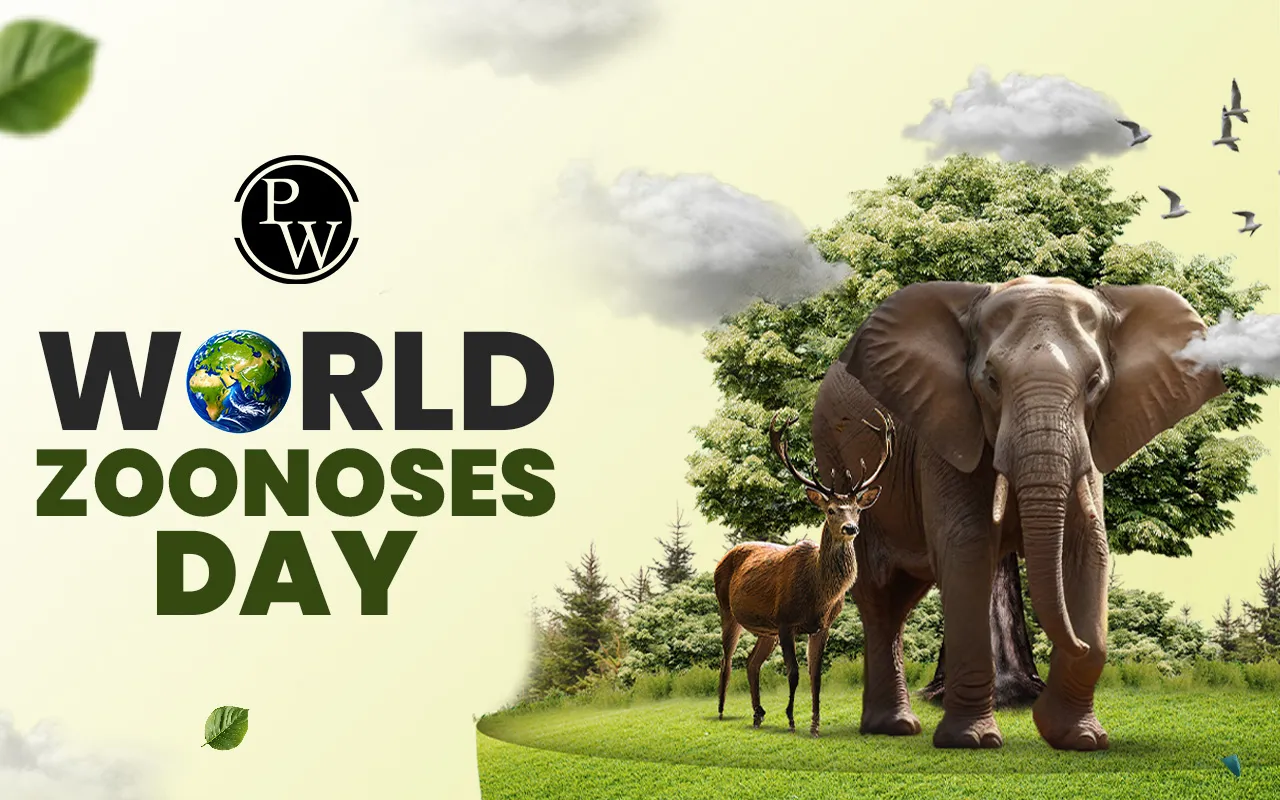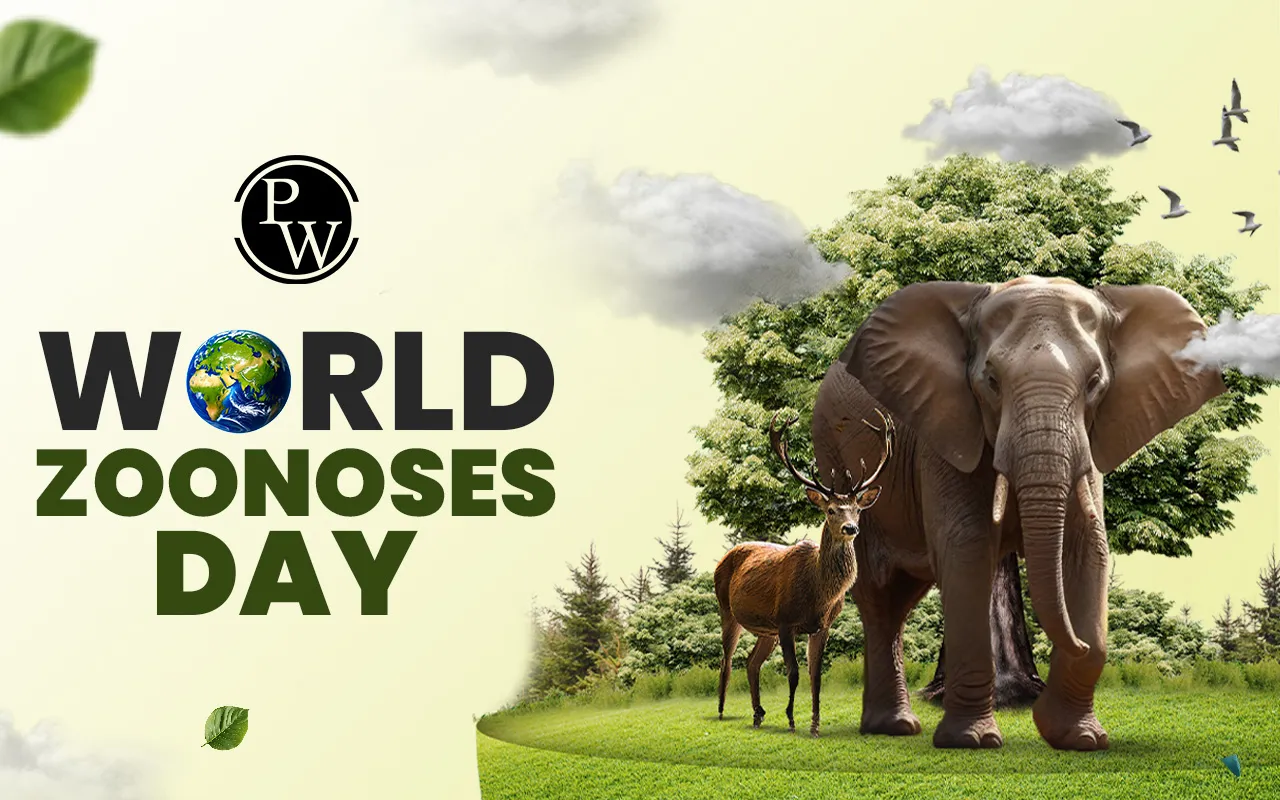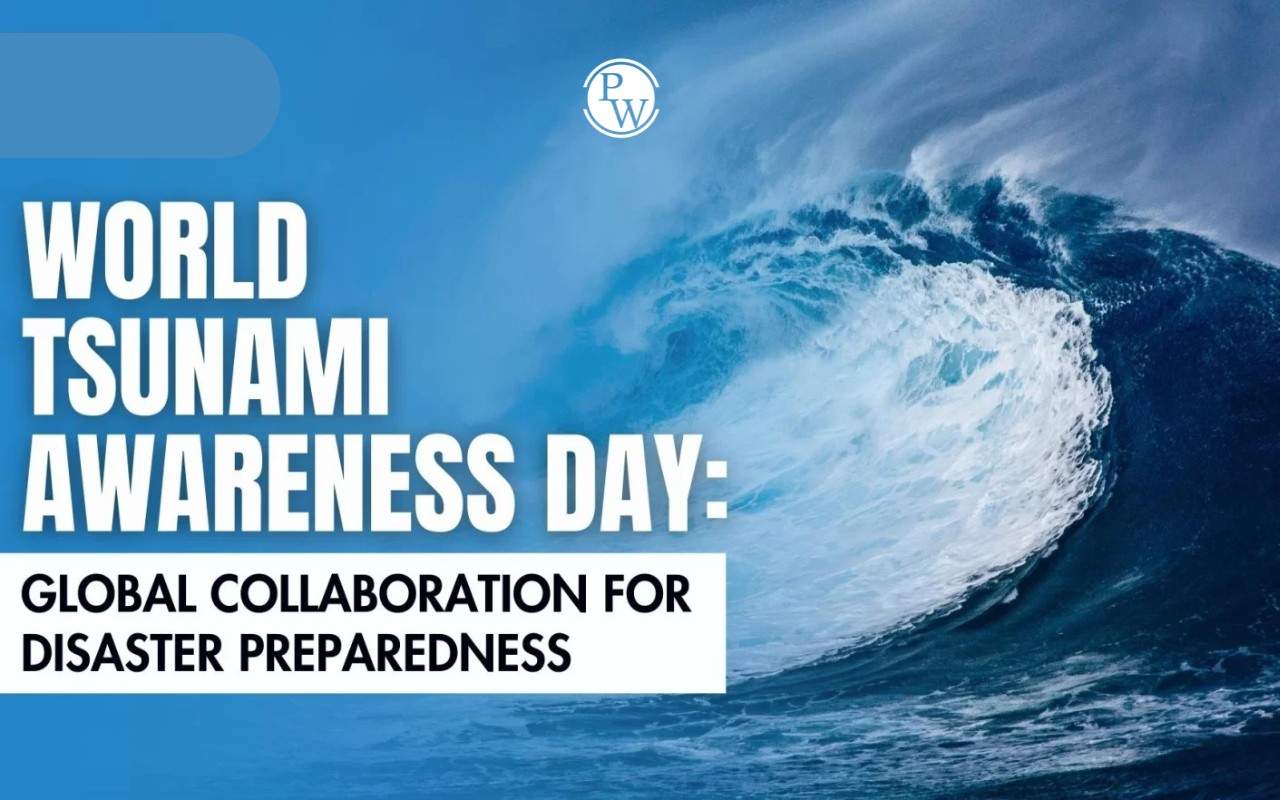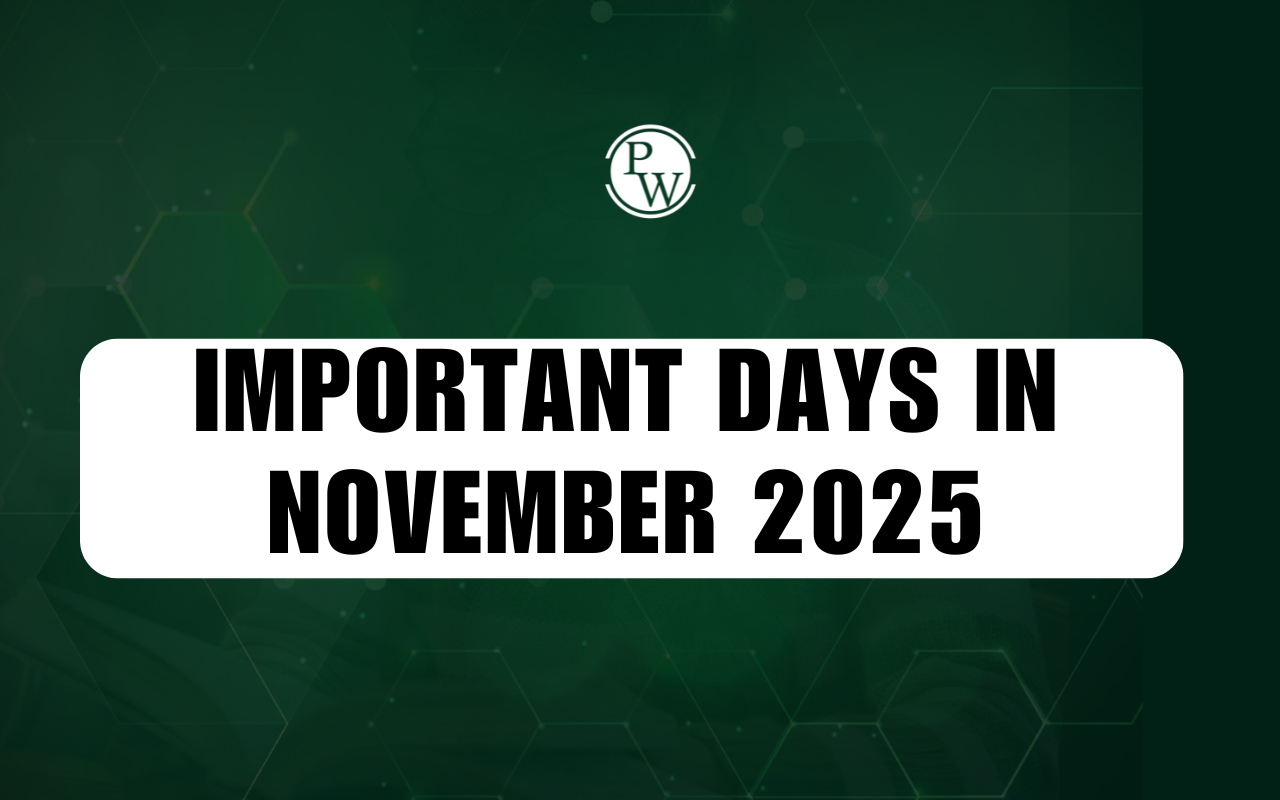

World Zoonoses Day 2025 will be observed on July 6. It is an annual global awareness day that highlights the risk of zoonotic diseases, infections that are transmitted from animals to humans. As climate change, urbanization, and global travel increase, so does the risk of zoonotic outbreaks. World Zoonoses Day 2025 serves as a reminder of the critical need to educate and take preventive steps to reduce the risk.
World Zoonoses Day 2025 Overview
World Zoonoses Day is observed every year on 6th July. It is an annual event dedicated to raising awareness about zoonotic diseases and promoting measures for their prevention and control. According to the Food and Agriculture Organization (FAO), over 60% of infectious diseases in humans are zoonotic in origin, and about 75% emerging infectious diseases come from animals.
Therefore, World Zoonoses Day 2025 will once again bring attention to the need for better health practices, disease prevention, and cooperation between human and veterinary medicine.
| World Zoonoses Day 2025 Overview | |
| Date | July 6, 2025 (Sunday) |
| Purpose | Raise awareness about zoonotic diseases |
| Origin | Commemorates Louis Pasteur’s first successful rabies vaccination on July 6, 1885, administered to Joseph Meister. |
| Theme | To be announced |
| Common Zoonotic Diseases | Rabies, COVID-19, Ebola, Lassa fever, avian influenza, bovine tuberculosis, Zika virus, SARS, MERS, West Nile virus, Lyme disease, yellow fever |
| Transmission Modes |
|
| Prevention Strategies | Vaccination, Responsible animal care, Food safety, Environmental hygiene, One Health approach: collaboration between human, animal, and environmental health sectors. |
| Key Messages | Awareness and prevention can save lives, & Collaboration is essential to break the transmission cycle |
History of World Zoonoses Day
World Zoonoses Day is celebrated to honour the day when Louis Pasteur successfully administered the first-ever vaccine against rabies, i.e, 6th July 1885. He gave this vaccine to a young boy who had been bitten by a rabid dog, saving his life. This medical success became a turning point in the fight against zoonotic diseases.
Over time, July 6 was adopted as World Zoonoses Day to spread awareness about how diseases can jump from animals to humans and how they can be prevented. The day is now used by health organisations worldwide to educate people on the importance of animal and human health working together.
World Zoonoses Day 2025 Theme
The official theme for World Zoonoses Day 2025 is expected to be announced soon. However, in previous years, themes have generally focused on concepts like "One World, One Health: Prevent Zoonoses", which highlight the need for a united approach in tackling zoonotic diseases. The likely focus for 2025 will be on disease surveillance, environmental protection, and promoting stronger health systems.
What is Zoonotic Disease?
Zoonotic diseases are illnesses that are passed from animals to humans. These diseases can be caused by viruses, bacteria, parasites, or fungi. Common zoonotic diseases include rabies, bird flu, swine flu, Ebola, brucellosis, and COVID-19. Transmission of these diseases can happen through:
-
Animal bites or scratches
-
Consuming contaminated food or water
-
Handling infected animals or animal waste
-
Insect bites, such as mosquitoes or ticks
Some diseases are mild, but others can be life-threatening. What makes zoonotic diseases particularly dangerous is their ability to spread quickly and sometimes mutate, making them harder to control.
Government Initiatives to Prevent Zoonotic Diseases
Indian government’s initiatives are centered on the One Health approach, integrating human, animal, and environmental health sectors. Here are some key initiatives:
-
National One Health Programme for Prevention and Control of Zoonoses (NOHP-PCZ): This program institutionalizes the One Health approach from national to village levels to address zoonotic threats. It enhances inter-sectoral coordination, surveillance, and joint action across human, animal, and environmental health sectors.
-
Centre for One Health (CoH): CoH coordinates national programs for zoonotic disease prevention and outbreak response. It ensures cross-sectoral collaboration and leads training, research, and capacity-building initiatives.
-
National Rabies Control Program (NRCP): The NRCP aims to eliminate rabies through improved surveillance, vaccination, and awareness. It strengthens post-exposure treatment and capacity at the state and district levels.
-
Technical Guidance on Zoonotic Diseases: This provides a blueprint for implementing the One Health approach at local levels. It guides multisectoral coordination, risk communication, and integrated outbreak preparedness.
-
Community Outreach & Capacity Building: This initiative engages vulnerable communities through awareness campaigns and training. It involves farmers, forest workers, and NGOs to promote prevention and preparedness.
Importance of World Zoonoses Day 2025
World Zoonoses Day 2025 holds great importance, especially in today's interconnected world where diseases can spread across continents quickly. Here's why the day is significant:
-
Raises Public Awareness: Educates people on the origin, prevention, and control of diseases that spread from animals to humans.
-
Promotes Healthier Practices: Encourages proper hygiene, safe animal handling, and vaccination of pets and livestock.
-
Supports Scientific Progress: Highlights the need for research in virology, vaccines, and diagnostics.
-
Strengthens Global Health Cooperation: Pushes countries to work together under the One Health approach.
-
Prepares for Future Pandemics: Reminds governments and individuals to stay alert, strengthen surveillance, and invest in health infrastructure.
After the COVID-19 pandemic, the relevance of this day has grown even more. It reinforces that by protecting animals and nature, we also protect ourselves.
Want to understand public health and environment-related topics in-depth for UPSC? Explore PW UPSC Courses today to boost your preparation!
World Zoonoses Day 2025 FAQs
What is World Zoonoses Day?
Why is World Zoonoses Day celebrated on July 6?
What is the meaning of Zoonoses?
What are examples of zoonotic diseases?
What is the One Health approach?

UPSC Coaching












